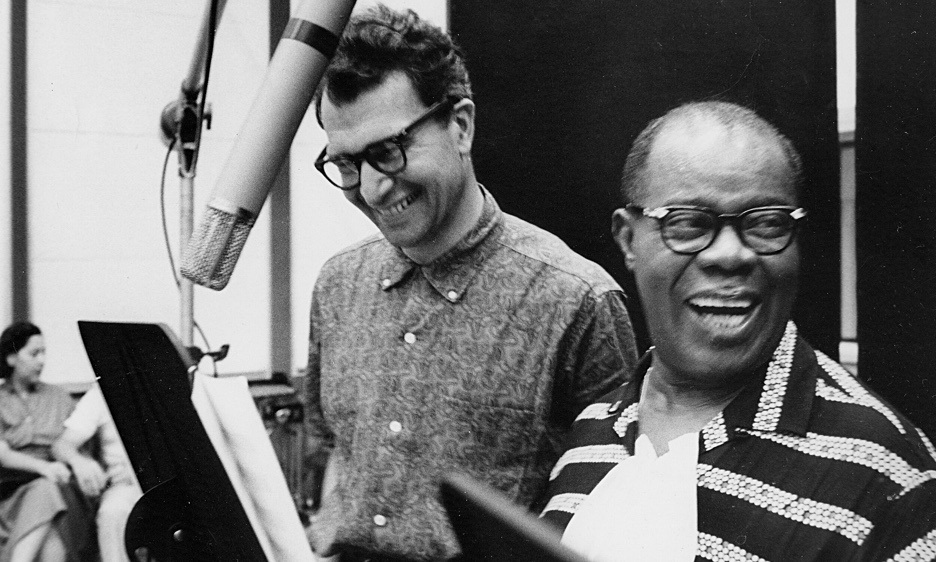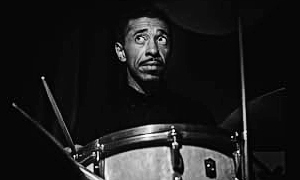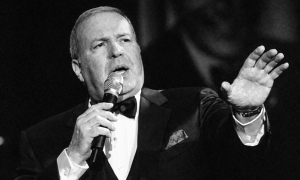Home » Jazz Articles » Book Review » The Best Musical Almost No One Ever Saw: The Real Ambassadors
The Best Musical Almost No One Ever Saw: The Real Ambassadors

 The Real Ambassadors: Dave and Iola Brubeck and Louis Armstrong Challenge Segregation
The Real Ambassadors: Dave and Iola Brubeck and Louis Armstrong Challenge Segregation Keith Hatschek
279 Pages
ISBN:978-1-4698-3784-4
University Press of Mississippi
2022
In the late 1950s, Dave Brubeck and Iola Brubeck decided that it might be time for jazz to visit Broadway. Iola, in particular, felt strongly about doing a project that blended jazz as an art form and as a sociopolitical commentary on the absurdity of racial segregation. The Real Ambassadors was the result. Sadly, Ambassadors never made it to Broadway. For one thing, cost was a factor, because Dave and Iola had conceived of the musical on a grand scale, with two bands, a chorus, and a boy-meets-girl back story. Aside from that, this was the Cold War, before the Cuban missile crisis even. No one was sure how an audience would react to a musical that had some pretty tough things to say about American a society, not to mention American diplomacy. Backers and producers were, understandably gun shy. Joe McCarthy was probably still alive when the idea occurred to Dave and Iola, and there was nothing funny about what he had put the country and many artists through. And then there was race.
Race has never been a comfortable subject in jazz, even if it's always there. Brubeck himself saw what happened to his bookings when bassist Gene Wright joined the Quartet, thereby creating a mixed band that couldn't perform in the US South. Brown v Board of Education (1954) was (and alas, remains) heavily contested. The Civil Rights movement was heating up, and you could watch the images from Birmingham and elsewhere on the afternoon news. Since The Ambassadors was, in large part, about the irony of race in American cultural diplomacy—the State Department had started sending American musicians abroad to great fanfare in 1956. The idea that maybe jazz musicians could undo some of the mischief that professional diplomats wrought, was uncomfortably true. After all, when Louis Armstrong went to the then Belgian Congo in 1960, he was carried around on people's shoulders. Eisenhower's Vice President had gone to Caracas, Venezuela, in 1958 and barely made it out alive. Perhaps calling jazz musicians like Armstrong the Real Ambassadors on a Broadway stage was not such a good idea, even if it were true. And, so, with the exception of what was apparently a remarkable performance at the Monterey Jazz Festival in 1962—of which some photos, but, sadly, no other record remains, that was that. An analog recording was issued by Columbia Records in 1962. You can still find it, and there was also a CD produced in 1994. But Iola Brubeck's narration, which is basically critical to understanding the continuity of the back story, was not included. Predictably, perhaps, the original album sold poorly, only confirming the idea that jazz fans did not want to hear a story of racial equality, however movingly told it was. When you read that Louis Armstrong, who, with Carmen McRae starred in the Monterey production, was moved to tears in singing a song about whether God—in whose image humans were ostensibly made—might be Black, or perish the thought, a zebra, black and white, you know that this was a missed opportunity.
At that point, Pops was an entertainer, and the late success of "Hello, Dolly" would do little to alter the image. The fact that he had, more or less, invented the jazz trumpet in a city in which his own mixed band could not perform would not have occurred to most Americans in 1964. His manager, Joe Glaser (and, Brubeck's, for the record), had him pitching Schaeffer Beer for the World's Fair. Follow the money. In music, as in politics, the advice seldom leads you astray.
Keith Hatschek has produced a truly exceptional book, well written, researched, and, for the most part, well edited. It is, after all, the product of a university press, and whatever else we may think, some of them still do a largely exemplary job on subjects that often remain a labor of love. There is a side here of Pops, Dave Brubeck, and, perhaps not insignificantly, Iola Brubeck, that many will find absolutely absorbing, not to say largely unknown. Hatschek deserves a wide readership in recounting a story of which far too few of us are aware, even fifty years on. It is also a worthy addition to the literature on "jazz diplomacy."
Tags
Book Review
Richard J Salvucci
University Press of Mississippi
Dave Brubeck
Louis Armstrong
Carmen McRae
Iola Brubeck
Jazz Ambassadors
PREVIOUS / NEXT
Support All About Jazz
 All About Jazz has been a pillar of jazz since 1995, championing it as an art form and, more importantly, supporting the musicians who make it. Our enduring commitment has made "AAJ" one of the most culturally important websites of its kind, read by hundreds of thousands of fans, musicians and industry figures every month.
All About Jazz has been a pillar of jazz since 1995, championing it as an art form and, more importantly, supporting the musicians who make it. Our enduring commitment has made "AAJ" one of the most culturally important websites of its kind, read by hundreds of thousands of fans, musicians and industry figures every month.
























